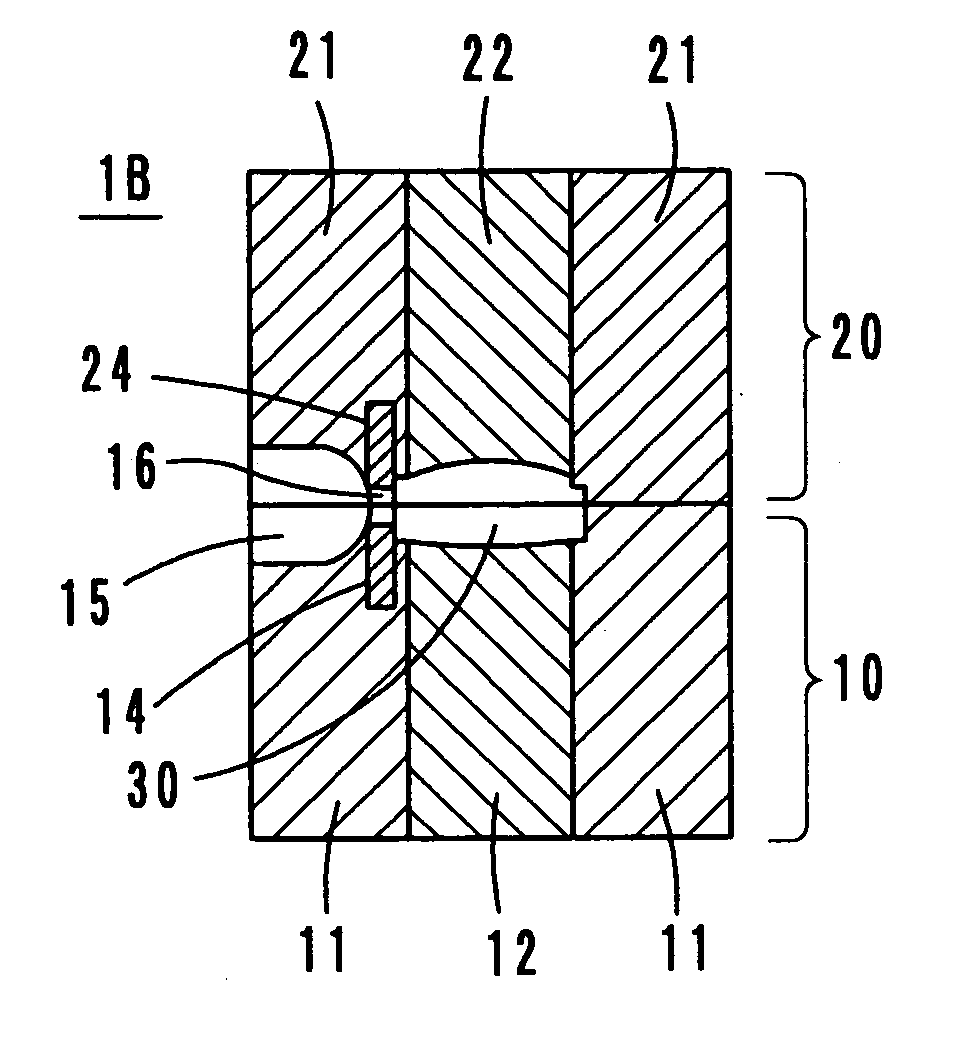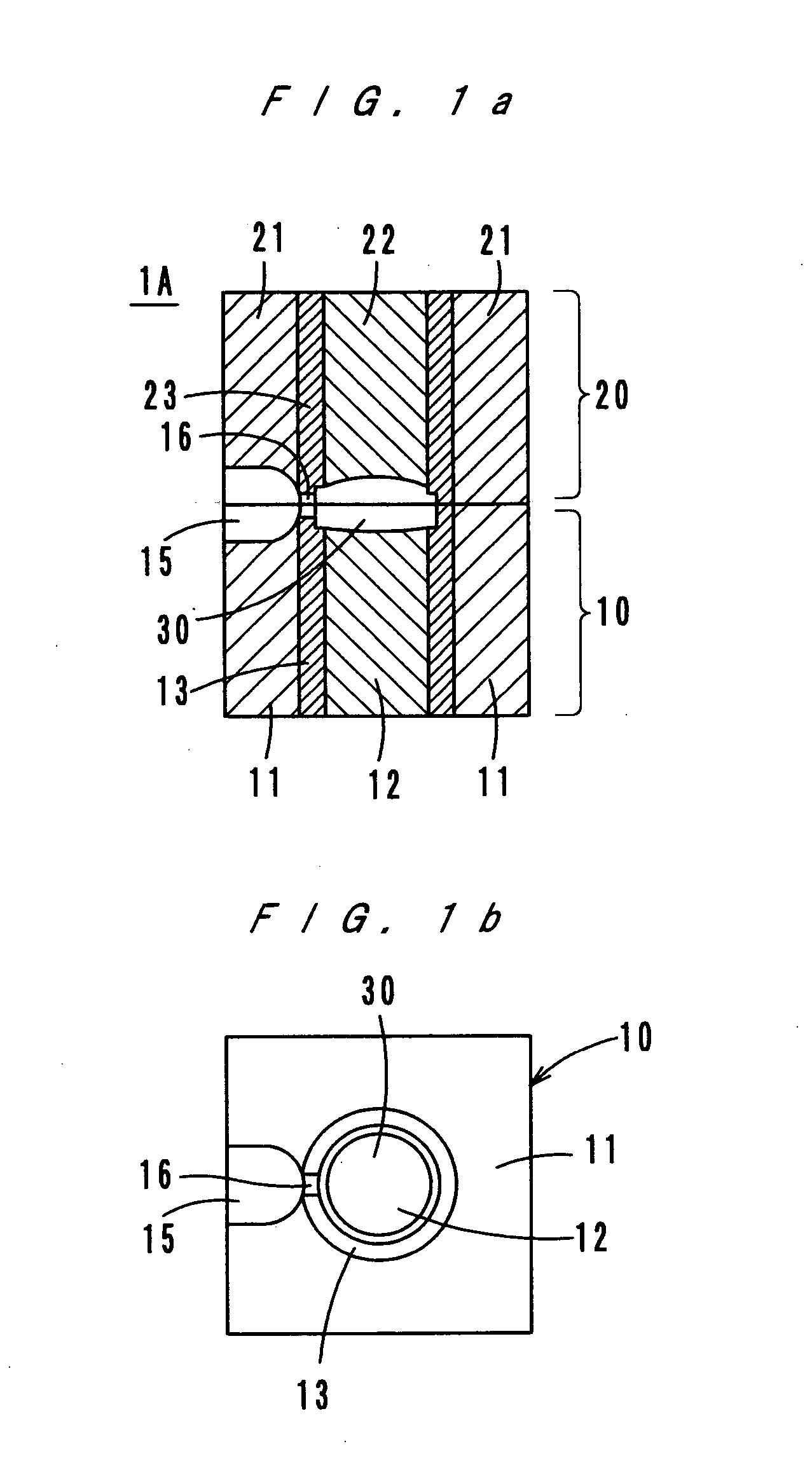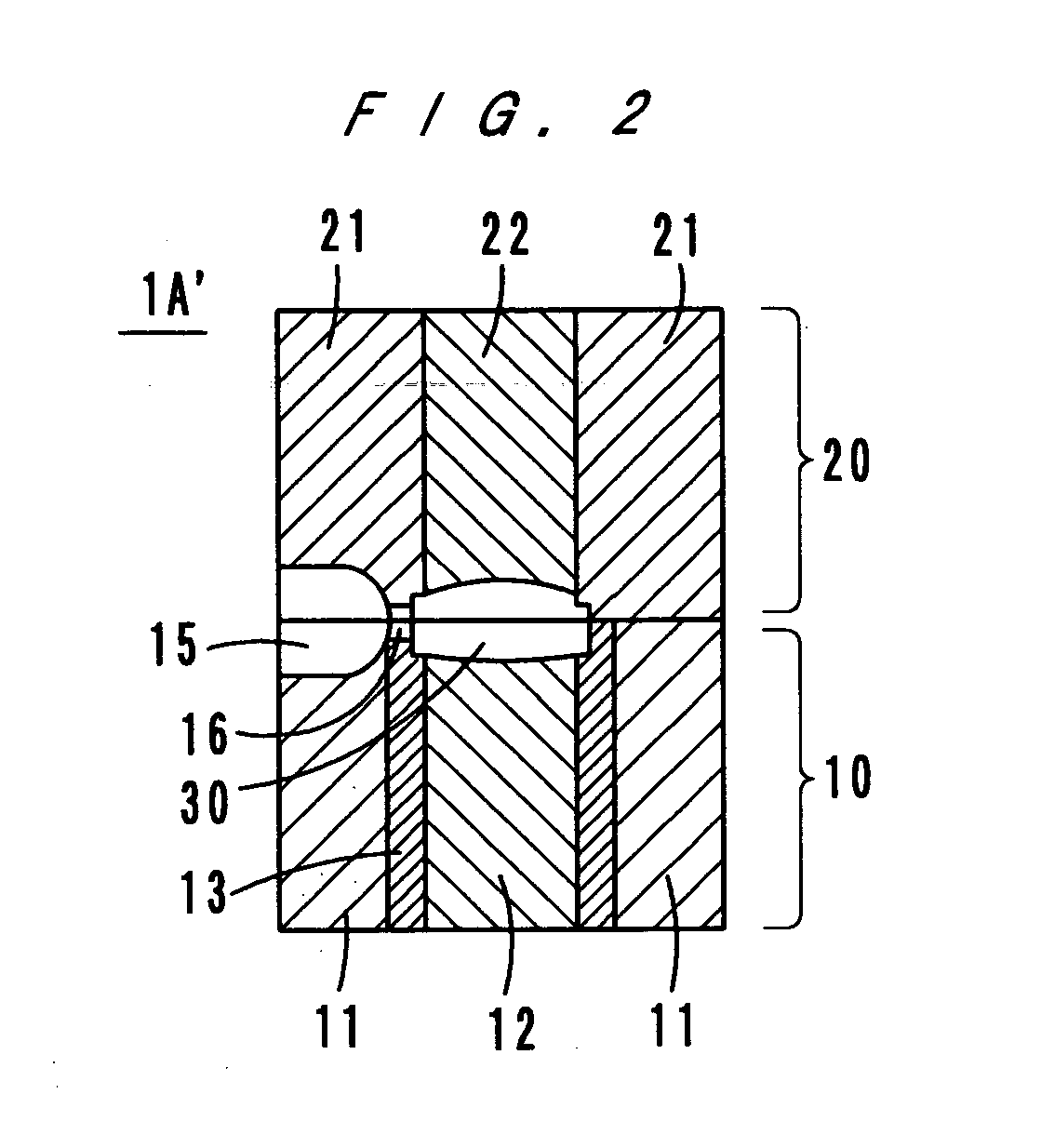Injection mold and injection molding apparatus
a technology of injection molding and injection molds, which is applied in the field of injection molds and injection molding apparatuses for molding small and light optical elements, can solve the problems of weak pressure applied to the resin in the cavity, short supply of resin to compensate for shrinkage of the resin, and low accuracy of fine configuration of a surface and a smooth surface, so as to improve the accuracy of transfer and fine configuration , the effect of accurate smooth surfa
- Summary
- Abstract
- Description
- Claims
- Application Information
AI Technical Summary
Benefits of technology
Problems solved by technology
Method used
Image
Examples
first embodiment
See FIGS. 1a, 1b and 2
[0021] As FIGS. 1a and 1b show, a mold 1A according to a first embodiment of the present invention comprises a movable mold 10 and a fixed mold 20. The movable mold 10 comprises bases 11 and 12, and a sleeve-like heat insulator 13. The fixed mold 20 comprises bases 21 and 22, and a sleeve-like heat insulator 23. A cavity 30 is formed of mutually opposite end faces of the bases (cores) 12 and 22, and sides of the heat insulators 13 and 23.
[0022] A runner 15 is formed in the parting surface between the bases 11 and 21. A gate 16 is formed in the heat insulators 13 and 23 to be located between the runner 15 and the cavity 30. More specifically, the gate 16 is formed of recesses made in the mutually opposite end surfaces of the heat insulators 13 and 23.
[0023] The surface of the cavity 30 is finished in accordance with the configuration of a product, such as a lens, and the cavity 30 may have a surface processed layer of nickel plating.
[0024] The bases 11, 12, 2...
third embodiment
See FIGS. 4a and 4b
[0032]FIGS. 4a and 4b show a mold 1C according to a third embodiment of the present invention. In the mold 1C, a gate 16 is formed of recesses made in the mutually opposite end surfaces of the mold bases 11 and 21, and the inner surface of the gate 16 is coated with a heat insulator. The heat insulator coating may be a ceramic flame coating, a metal plating such as nickel, cobalt, etc., a titanium evaporation coating such as titanium nitride or a heat resistance polymer coating such as polyimide resin (with a coefficient of heat conductivity of 0.28 W / mK). For the bases 11, 12, 21 and 22, the materials named in the description of the first embodiment are usable.
[0033] Like the modification shown in FIG. 2, in the third embodiment also, it is possible to provide the heat insulating coating only for the movable mold 10. The effect of the present invention, which will be described later, is obtained by providing the heat insulating coating. The effect can be obtain...
PUM
| Property | Measurement | Unit |
|---|---|---|
| glass-transition temperature | aaaaa | aaaaa |
| glass-transition temperature | aaaaa | aaaaa |
| glass-transition temperature | aaaaa | aaaaa |
Abstract
Description
Claims
Application Information
 Login to View More
Login to View More - R&D
- Intellectual Property
- Life Sciences
- Materials
- Tech Scout
- Unparalleled Data Quality
- Higher Quality Content
- 60% Fewer Hallucinations
Browse by: Latest US Patents, China's latest patents, Technical Efficacy Thesaurus, Application Domain, Technology Topic, Popular Technical Reports.
© 2025 PatSnap. All rights reserved.Legal|Privacy policy|Modern Slavery Act Transparency Statement|Sitemap|About US| Contact US: help@patsnap.com



